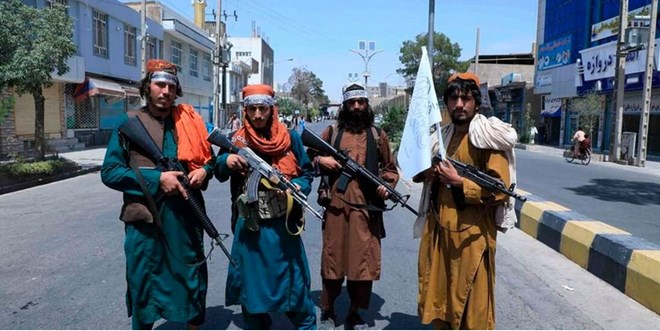
Monday August 23, 2021

Kenyan officials in Nairobi may face a new barrier in their bid to push Al-Shabaab into a tighter corner with more sanctions after the Taliban astonishingly seized control of Afghanistan this week.
Taliban, perennially sanctioned alongside Al-Qaeda and ISIS and various affiliated groups, had been in a sanctions regime Kenya has been asking the world to consider including Al-Shabaab to dissuade more fighters from joining.
According to previous failed bids, Kenya had wanted the Somalia-based group listed under Resolution 1267 of 1999 of the UN Security Council, which designated the Taliban as a terrorist organisation.
Leaders of these listed groups had been on permanent sanctions lists as well, barring anyone from doing business with them or facilitating their travel across the world.
Al-Shabaab, which pledged allegiance to Al-Qaeda in 2010, is not currently classified as a terror group by the UN, although individual countries like Kenya, Somalia and the US have designated it as such.
Bring ‘world focus’
Kenya reckons that such a listing, often opposed by Somalia itself, can help bring “world focus” to the militant group. A pitch fronted in 2019 and 2020 by Nairobi indicated such a listing was needed to bring global efforts into tackling the group.
“It has caused serious havoc, not just in Kenya but the region and the world in general. It is important that all global efforts now come together to combat this,” Kenya argued in the past.
But now with the Taliban victory in Afghanistan, some experts say Nairobi must lobby again for tougher sanctions on Al-Shabaab.
Dr Mustafa Y Ali, chairman of Nairobi-based think tank Horn International Institute for Strategic Studies, told Nation.Africa that this week’s events may inspire other terror groups in eastern Africa to continue waging long-term wars in hopes of clinching similar victories in future.
“Besides being inspired, they will try to emulate what has happened in Afghanistan. That presents a particular security threat for the region. Kenya should go back to the UN Security Council to insist that they label Al-Shabaab as a terrorist group,” he told Nation.Africa.
Somalia in danger
“I am hoping that this time round the Somali government is not going to say No to these efforts, because even (they) should see what has happened in Afghanistan and see that Somalia is in danger of being overrun by Al-Shabaab.”
Previous bids by Nairobi fell through after facing intense lobbying from humanitarian organisations, which argued the sanctions regime as tough as what Kenya was asking for could only hurt civilians.
The sanctions would effectively mean aid agencies would be barred from operating in Shabaab strongholds. In turn, the US and UK vetoed the two last efforts by Nairobi.
On Wednesday, a diplomat told the Nation that Kenya’s bid “remains always on” as the government sees Al-Shabaab as a threat to national security. There were indications a new bid could emerge within Kenya’s current term as a non-permanent member of the UN Security Council.
But even as the debate rages, the Taliban victory offers a new headache. Experts say it may force a redefinition of the entire sanctions regime and whether they are needed at all to force militant groups into conventional politics and human rights.
Failures of interventions
“This has exposed many failures of interventions. Going forward, I think we should expect anything because in the first place there are different perspectives through which the problem is seen,” said Hawa Noor M, a researcher at University of Bremen.
“So there are those who are spreading fear and caution against such Taliban-like takeovers elsewhere on the globe such as in Somalia, while others think that the takeover has valuable lessons to spur a change of approach.
“I am inclined to the latter regarding Kenya’s push given the increasing disapproval of the global war on terror. The other question is of course whether such sanctions can have any major impacts on Al-Shabaab as a group as opposed to aid agencies,” she told the Nation on Wednesday.
The Taliban were originally an offshoot of militants funded by the US government against the Soviet Union. They later morphed into a brutal group that seized power in 1996 before a US-led coalition of Nato forces deposed them in 2001.
Regrouped
However, they regrouped again, often hiding in the mountains of Afghanistan and neighbouring Pakistan, where most of its Pashtun fighters share ethnic relations.
The US, which incidentally was funding Pakistan in the hunt for Al-Qaeda leader Osama bin Laden, has argued there was no plan to rebuild a state in Afghanistan, arguing instead that the original plan to capture or kill Bin Laden was met in 2011.
But as to whether the Taliban victory could inspire a new wave of more fighting or even an urge to negotiate with terrorists, officials in Nairobi think the Afghan group operated in a different environment.
There has been debate on whether the Afghan group was actually mischaracterised as a terrorist group, rather than as a religious movement seeking stricter observation of the Koran or a ragtag militia using terror to seek attention.
When it first emerged in the 1990s, it was largely composed of religious pupils. But they began harsher administration of justice, based on a strict interpretation of Islam, including flogging errant people, banning education for women and a stricter code of dressing for women, including covering their faces and being accompanied by adult male relatives.